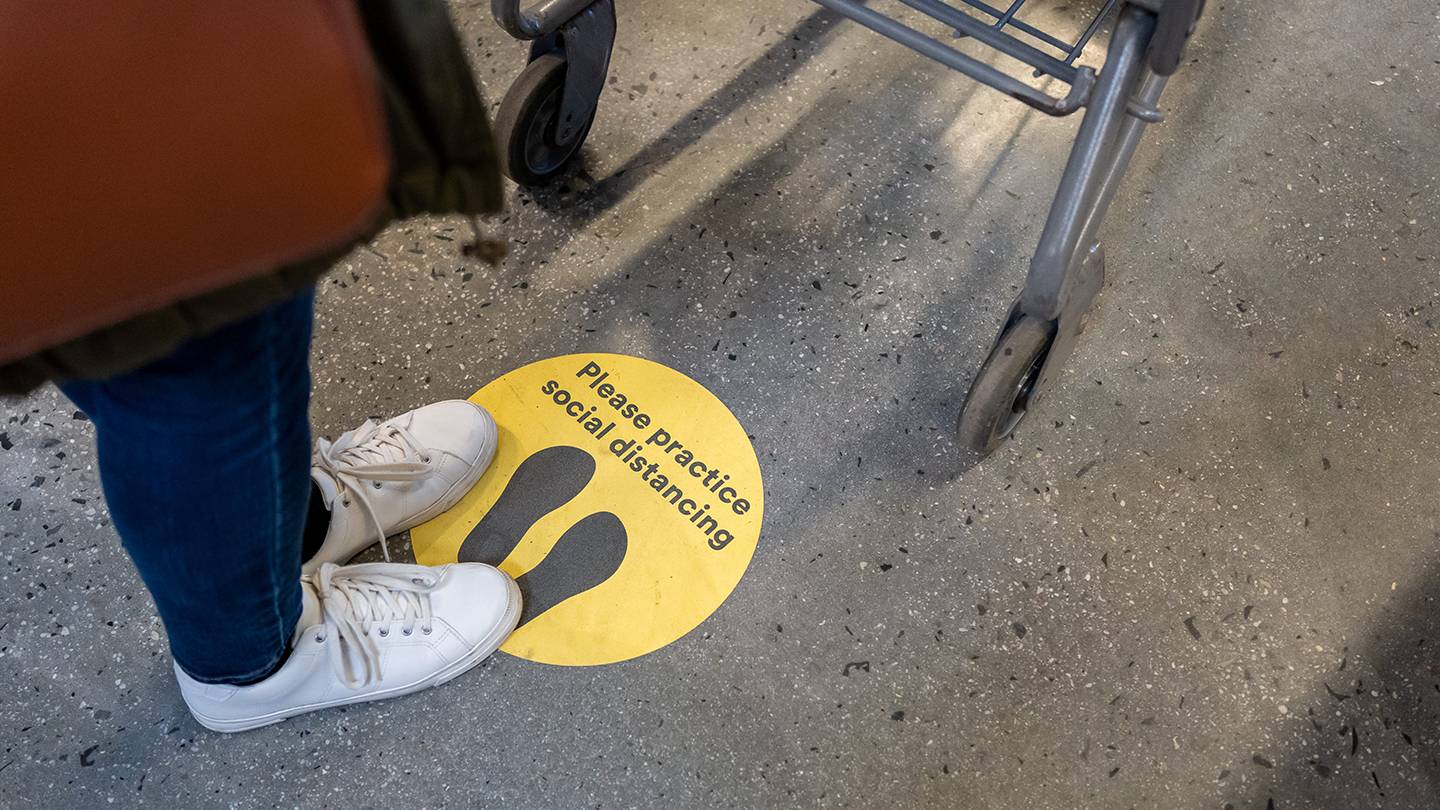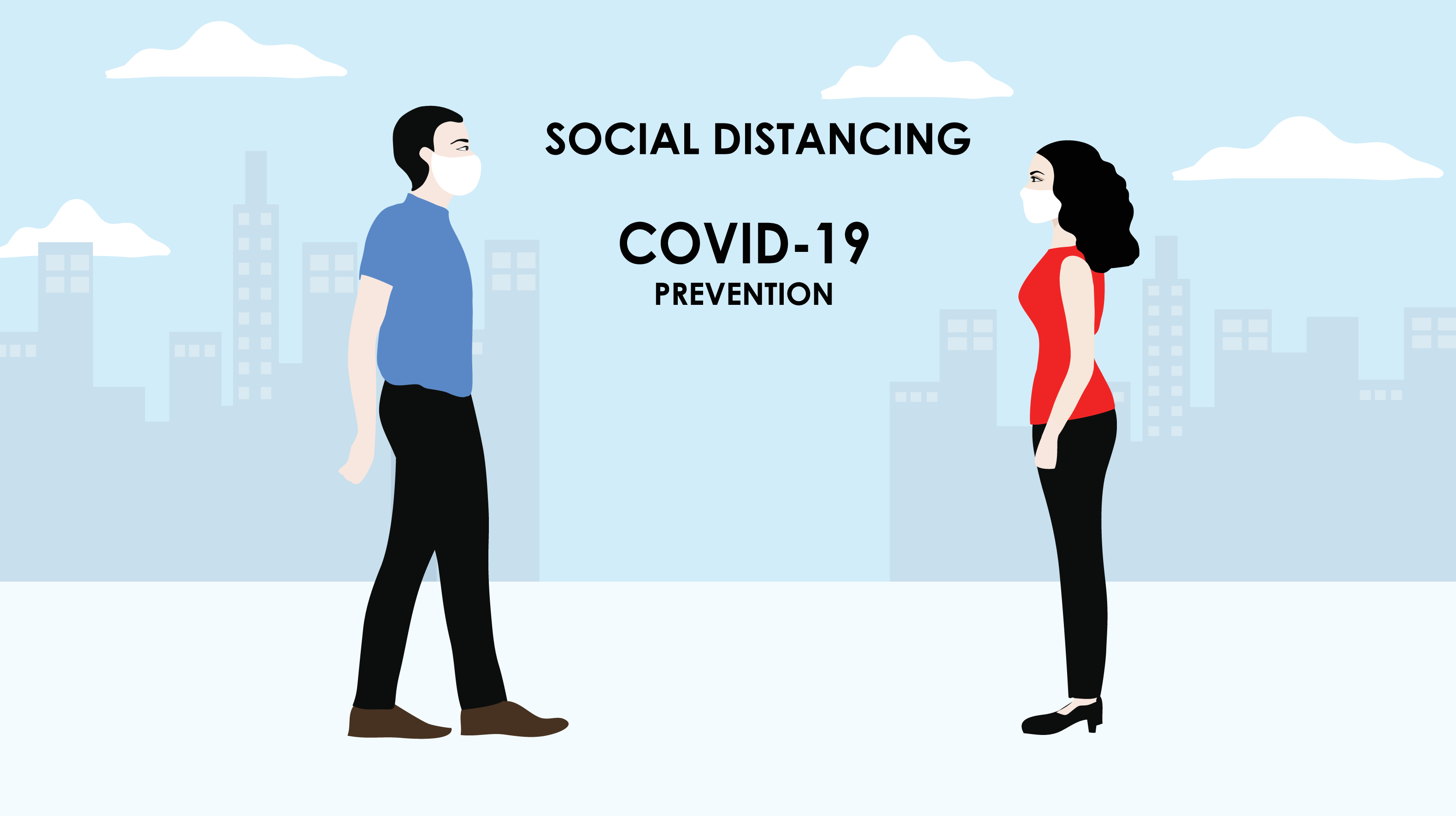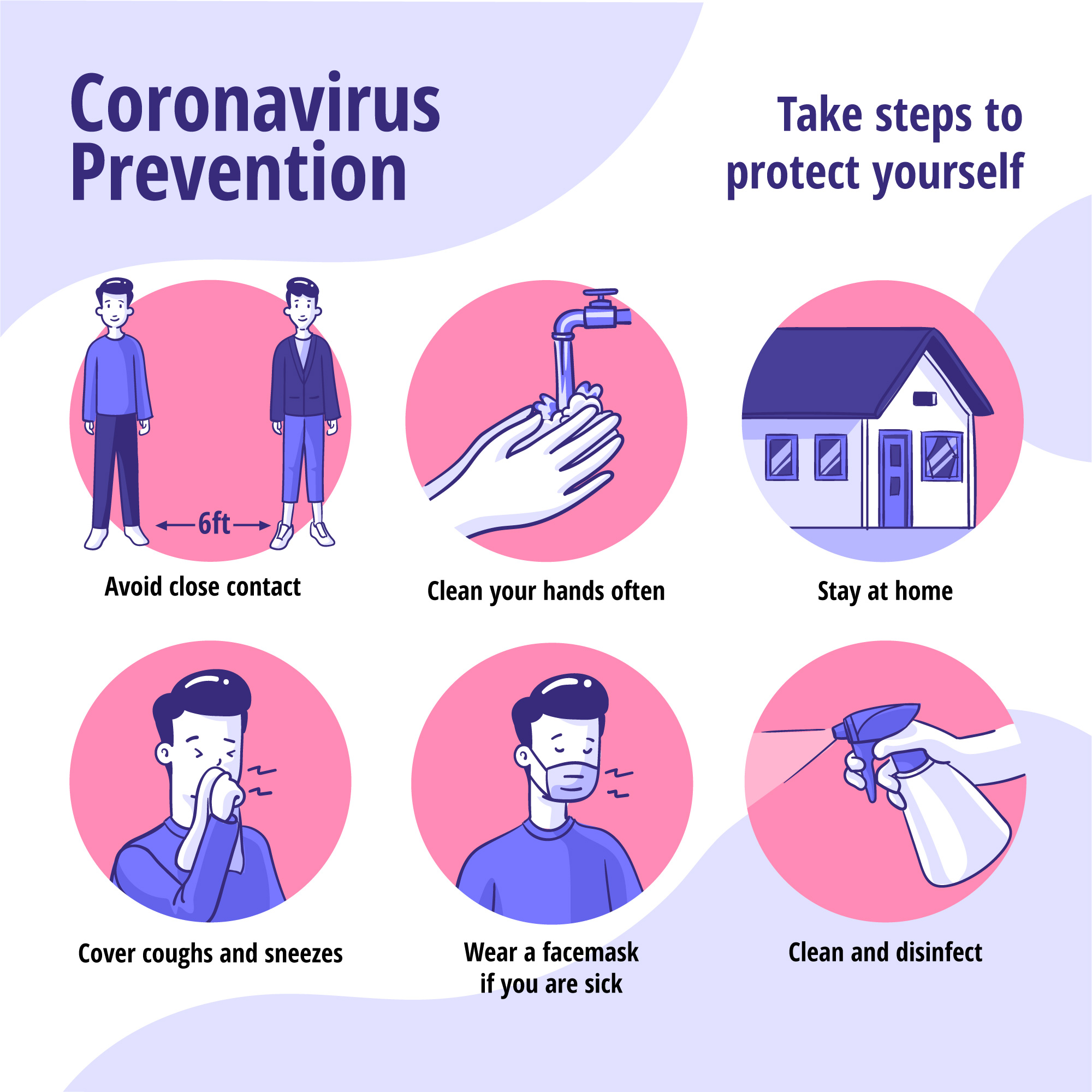Social Distancing

Social Distancing: Preventing the Spread of Coronavirus
The best way to reduce the risk of getting infected, especially becoming severely ill with coronavirus, is getting vaccinated and boosted. Yet, right alongside immunization are steps you can take to both abstain from getting contaminated and assist with the prevention of spreading the infection to other people. They incorporate wearing your cover as the need might arise, keeping away from swarms, and keeping actual separation.
There are numerous things we can do to forestall the spread of COVID-19: washing your hands, coughing into our elbows, abstaining from contacting people, staying at home assuming you're feeling sick, and socially separating.

What is Social Distancing?
Maintaining distance or space between people helps to prevent the spread of coronavirus. Practicing social distancing refers to staying home and away from others as much as possible to help prevent the spread of COVID-19. Social distancing encourages us to use things such as online video and phone communication instead of in-person contact.
The spread of coronavirus can be transmitted by airborne particles. The virus particles may travel as you sneeze or cough. These particles may be transmitted by large droplets and expose others rapidly and at a greater distance. Thus, it is advised to maintain a distance of a minimum of 2m to be safe from contracting the virus.
Various other ways to be protected from Coronavirus include:
- Social distancing will protect yourself and your family.
- Vaccination against COVID-19. Currently, in the United States, everyone above the age of 5 can now get a safe and effective vaccine.
- Staying at home as much as possible.
- Avoid public places such as stores, gyms, movie theatres, and restaurants as much as possible.
- Do not gather in large groups.
- Reducing public transportation while keeping a safe distance between yourself and fellow passengers.
- Reducing contact with anyone who does not live at your house.
Wash your hands regularly, particularly after being in broad daylight places. Use cleanser and water, and scour for somewhere around 20 seconds. If you don't approach cleanser and water, utilize an alcohol-based hand sanitizer. Cover all surfaces of your hands and rub them together until they feel dry.

Why is Social Distancing Important?
Social distancing is vital for forestalling the spread of infectious sicknesses, for example, COVID-19 (Covid). Coronavirus can spread through hacking, sniffling, and close contact. By limiting how much close contact we have with others, we diminish our possibilities of getting the infection and spreading it to our friends and family and inside our local area.
Social distancing is significant for us all, yet those of us who are at a higher gamble of genuine confusions brought about by COVID-19 ought to be particularly mindful about social distancing. Individuals who are at high gamble of inconveniences include:
- The grown-ups.
- Individuals who have genuine persistent ailments like coronary illness, diabetes, and lung sickness.
- The COVID-19 infection essentially spreads when one individual takes in drops or sprayers that are delivered when a contaminated individual hacks, wheezes, talks, or relaxes.
Physical distancing alludes to activities brought to stop or dial back the spread of an infectious illness. For an individual, it alludes to keeping sufficient separation (six feet or more) among yourself and someone else to abstain from getting tainted or contaminating another person. Orders to telecommute, and dropping face-to-face gatherings and bigger occasions help uphold physical distancing at a local area level.

Social Distancing, Quarantine, and Isolation – What Is the Difference?
Social distancing during COVID-19: Social distancing limits the nearby contact among yourself as well as other people locally, regardless of whether you are not debilitated or in danger. This is a willful practice to assist with halting the spread of COVID-19.
Quarantine during COVID-19: If you are asymptomatic you are advised to remain in self-quarantine with no to minimum contact. But, with visible symptoms quarantine at an institute under medical care is important. Quarantine may also be ordered by health departments or federal or state officials. Staying at home and avoiding contact with others reduces your risk for COVID-19 due to possible exposure.
Under quarantine, you should follow some steps to avoid passing coronavirus to others in your vicinity:
- Wash hands regularly.
- Do not share household items.
- Sleep in a separate bedroom.
- Use a separate bathroom.
Isolation during COVID-19: Isolation implies that you have affirmed or suspected COVID-19 and should be extra mindful to try not to spread the infection to other people. Isolation might happen at home or in the clinic. Guardians should wear defensive stuff to bring down the hazard of becoming contaminated.
How to Prevent COVID-19?
The following actions help prevent the spread of COVID-19, as well as other coronaviruses and influenza.
- Wear a face mask in public indoor spaces.
- Maintain at least six feet of distance between yourself and others.
- Avoid large gatherings.
- Socialize outdoors.
- Get vaccinated and boosted as soon as you are eligible.
- Avoid close contact with people who are sick.
- Minimize touching your eyes, nose, and mouth.
- Stay home when you are sick.
- Cover your cough or sneeze with a tissue, then throw the tissue in the trash.
- Clean frequently touched objects and surfaces regularly.
- Wash your hands often with soap and water.
How to Keep Social Distancing in Public?
Some of the tips on keeping a safe distance in public include:
- Pick outside settings for feasting or exercises whenever the situation allows, as that gives individuals more space to fan out.
- Assuming you should be inside, stay away from places that are packed and don't have great ventilation. Acquire outside air by opening entryways and windows.
- When inside or on open transportation, attempt to remain no less than 6 feet from others and wear a cover (if beyond 2 years old).
- Use drive-through or curbside get when feasible for food orders and shopping. Shopping on the web from home is one more method for staying away from others.
Outlook
Physical distancing is a significant piece of measure to control Coronavirus, yet precisely the distance away and for how lengthy contact is protected in various settings is hazy. The infection that causes COVID-19 spreads effectively through actual contact from one individual to another. To this end, it is critical to lessen the manners in which individuals come in close contact with each other. A successful method for doing this is to remain at home however much as could be expected and stay away from swarmed, public spots where it is hard to keep a place of refuge between individuals.

If you or anyone you know is suffering from the effects of Covid-19, our expert providers at Post Covid Centers will take care of your health and help you recover.
Call us on (469) 545-9983 to book a telehealth appointment for a home check-up.
People Also Read:
Post Covid Syndrome vs. Fatigue
While COVID-19 is a short-lived disease in most people, others experien...
Post Covid Syndrome vs. Skin Weakness Problems
A new study illustrates that some patients with COVID-19 disease have continuous skin-associated symptoms...
RELATED BLOGS
